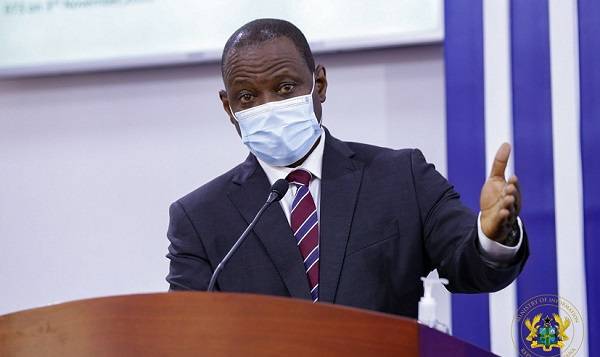Ghana has two cases of lassa fever.
There have been two confirmed cases of Lassa fever in Ghana.
On February 24, 2023, the Noguchi Memorial Institute for Medical Research confirmed the two cases.
According to a statement issued by the Ghana Health Service (GHS) on Sunday, February 26, 2023, signed by its Director-General, Dr Patrick Kuma-Aboagye, the first case was a 40-year-old trader who became ill for about two weeks and died at the Korle-Bu Teaching Hospital.
The second case, a contact of the first case, is currently admitted but in good health.
So far, 56 contacts have been identified and are being followed up on, according to him.
In Benin, Ghana, Guinea, Liberia, Mali, Sierra Leone, and Nigeria, Lassa fever (a viral hemorrhagic fever) is endemic. Ghana's first case was recorded in 2011.
The statement is given below.
On February 24, 2023, the Ghana Health Service received notification from the Noguchi Memorial Institute for Medical Research of two confirmed Lassa fever cases. Both cases are located in Accra. The first case involved a 40-year-old trader who became ill for about two weeks and died at the Korle-Bu Teaching Hospital. The second case, a contact of the fatal case, is currently admitted but in good condition. 56 contacts have been identified and are being followed up on so far.
In Benin, Ghana, Guinea, Liberia, Mali, Sierra Leone, and Nigeria, Lassa fever (a viral hemorrhagic fever) is endemic. Ghana's first case was recorded in 2011.
Following the notification, the public health measures listed below were implemented.
Public Health Emergency Management Committees have been formed at all levels (national, regional, and district).
A thorough investigation, including an environmental assessment, has begun.
Medication and logistics, including Personal Protective Equipment (PPE), are being deployed.
The process of locating and managing contacts is ongoing.
Contacts have been quarantined, and health personnel are monitoring them on a daily basis.
Strict infection prevention and control (IPC) measures, including barrier nursing, have been implemented.
The sensitization of medical personnel to Lassa fever has begun.
Lassa fever education and sensitization are ongoing in the community.
Brief about Lassa Fever
• Lassa fever is caused by the Lassa virus and has a 2-21 day incubation period.
• The virus is transmitted to humans through contact with rodent urine or feces contaminated food or household items.
• Lassa virus can also be transmitted between humans through direct contact with a person infected with Lassa fever's blood, urine, feces, or other bodily fluids. The Lassa virus has been linked to sexual transmission.
The Signs and Symptoms of Lassa Fever
Fever and general weakness are common early symptoms of Lassa fever.
People may later experience headaches, sore throats, muscle pain, chest pain, nausea, vomiting, diarrhoea, coughing, and abdominal pain.
In severe cases, bleeding may occur from the mouth, nose, vagina, or stomach. In fatal cases, death usually occurs within 14 days of onset.
Treatment and prevention
There is medication (antiviral) that can be very effective if taken early. There is currently no Lassa fever vaccine available.
Control and prevention
To discourage rodents from entering our homes, prevention relies on promoting community hygiene. Effective precautions include storing grain and other foodstuffs in rodent-proof containers, disposing of garbage away from the home, keeping a clean house, and keeping cats.
Let us also avoid coming into contact with blood and bodily fluids while caring for the sick.
The Ministry of Health and Ghana Health Service, in collaboration with our partners, want to reassure the public that every effort is being made to contain this outbreak and prevent the virus from spreading further.
DR PATRICK KUMA-ABOAGYE, DIRECTOR GENERAL, SIGNED




No comments yet
Be the first to share your thoughts!